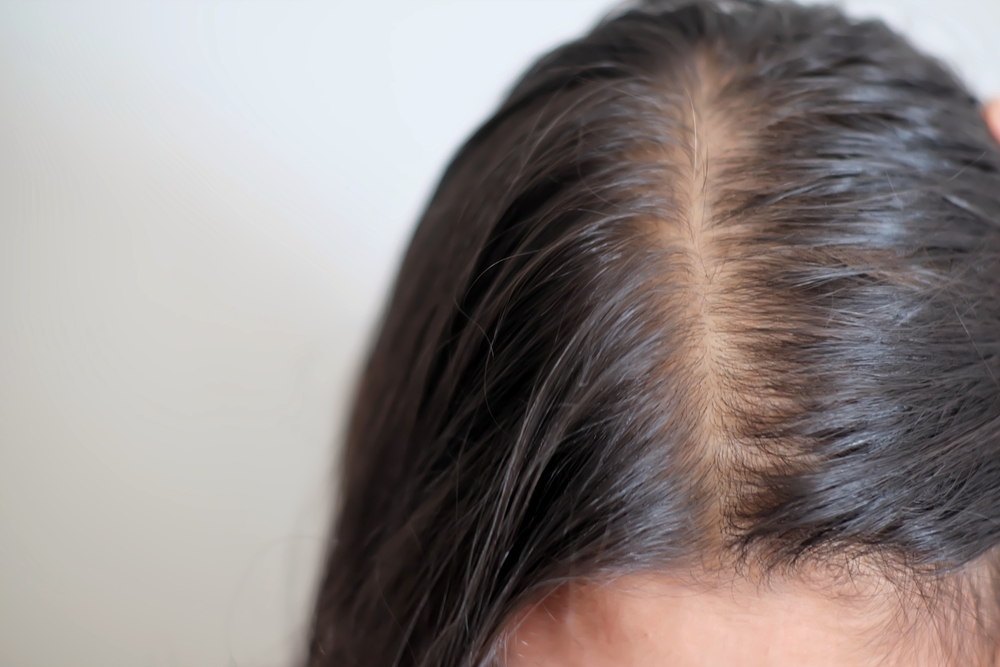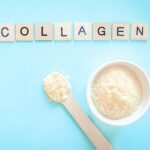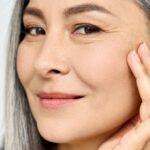Hair loss can be devastating, particularly with women. As we age and have exposure to oxidative stress, sun damage, and hormonal fluctuation, we can also experience hair loss. Yet there are many potential causes for hair loss that can absolutely be fixed. Vitamin deficiency is a common cause and with some dietary adjustments and possible supplements, one can experience new hair growth.
Vitamin D
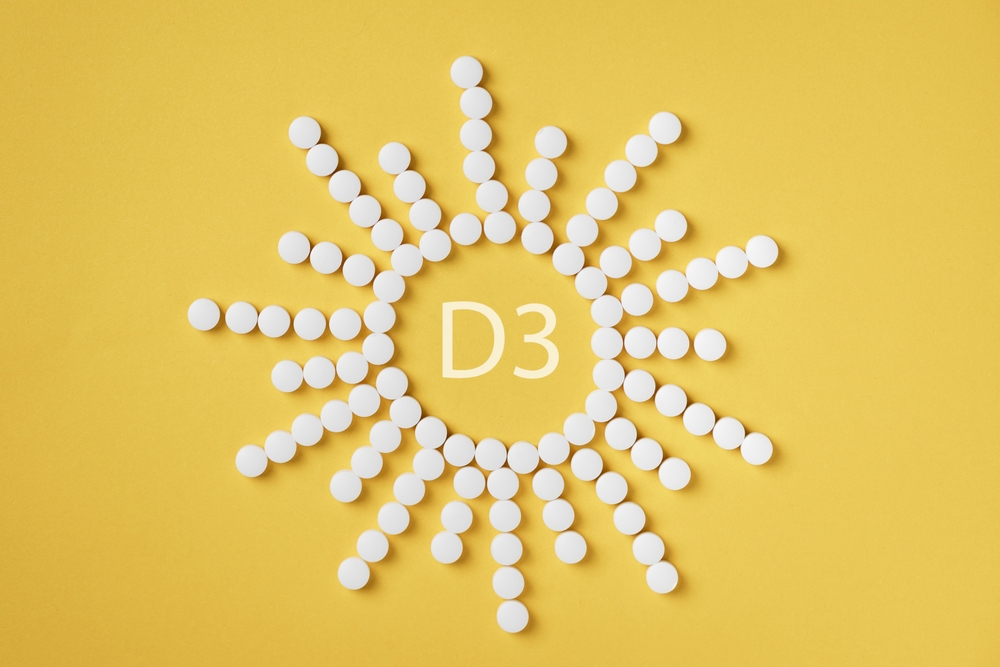

When it comes to hair loss, a lack of Vitamin D is often the case. Vitamin D deficiency is linked to many symptoms, including lack of bone density, muscle weakness, moodiness, depression, infertility, chronic pain, and fatigue, but few speak of its effect on hair growth.
Vitamin D stimulates hair follicles, helping hair to grow. In fact, a deficiency in Vitamin D is even linked as a cause of alopecia areata.
A supplement may be a good idea when getting enough vitamin D is tricky. You can also get it from:
- safe exposure to sunlight
- avocados
- fish
- nuts
- eggs
- chia seeds
Iron
An iron deficiency can commonly cause hair loss. Iron helps with hemoglobin production, which helps deliver nutrients and oxygen to hair follicles. When the body is low in iron, it goes into survival mode, sending oxygen to only our most vital organs. Hair follicles fall low on the list and the result is hair thinning and hair loss. Foods high in iron are
- leafy vegetables
- berries
- broccoli
- red meat
Zinc
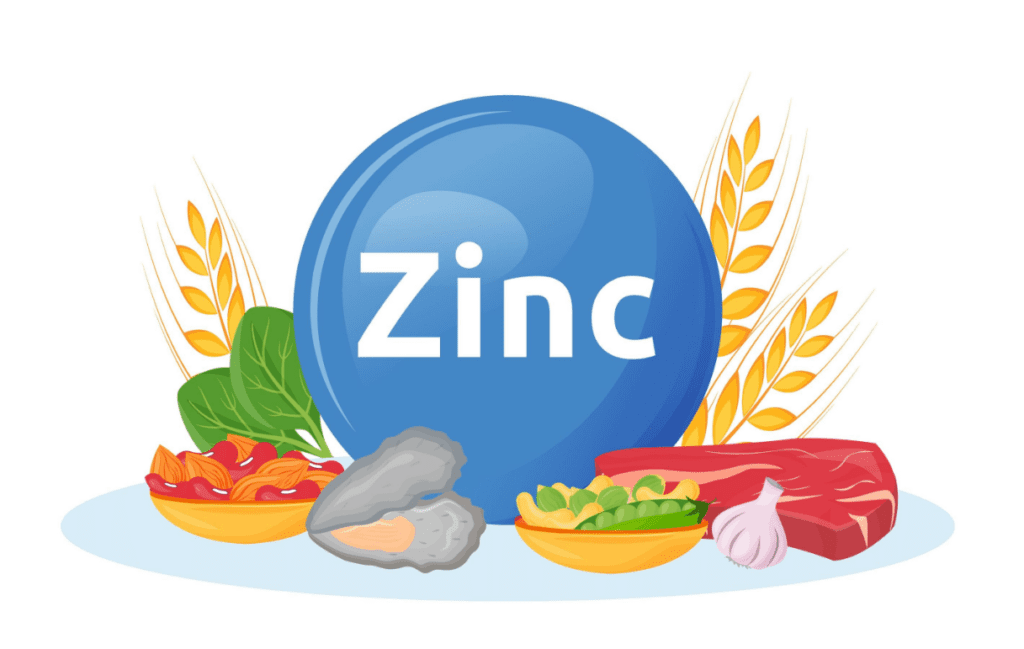

Zinc works to keep the oil glands around hair follicles healthy. It can greatly help with hair tissue growth and repair. A zinc deficiency can lead to hair loss and hair breakage. A trace element that the body can’t produce on its own, it needs to be ingested either as a supplement or in pumpkin seeds, oysters, or beef.
Selenium
This is an antioxidant that protects you from oxidative stress, which leads to aging. If you have low levels of Selenium, hair loss can result. It is rare to have a deficiency of Selenium, and plenty can be found in
- Brazil nuts
- sunflower seeds
- eggs
- mushroom
- spinach
- fish
- cereals
- pasta
- whole meal bread
Excessive Selenium has a toxic effect so always be sure to consume it in moderation.
Biotin (B7)
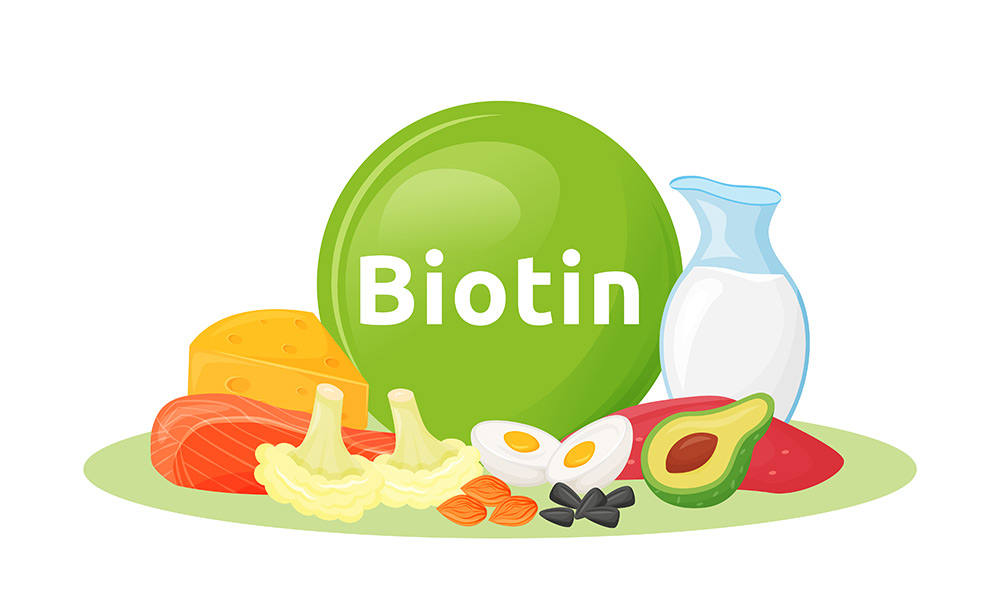

Biotin plays an essential role in keeping your hair, skin, and nails healthy. It’s abundant in many foods, including
- dark green vegetables
- egg yolk
- cheese
- rice
- almonds
- peanuts
- whole grains
- mushrooms
- organ meats
- bananas
Vitamin A
Too much or too little Vitamin A can cause hair loss. It’s an essential nutrient for hair growth yet too much can have the power to send the follicles into overdrive, causing hair loss. Having a balanced amount, as part of a healthy diet or balanced multivitamin can be a great help. Dark yellow and orange fruits and vegetables are high in Vitamin A.
Vitamin F (Omega-3 and Omega-6)
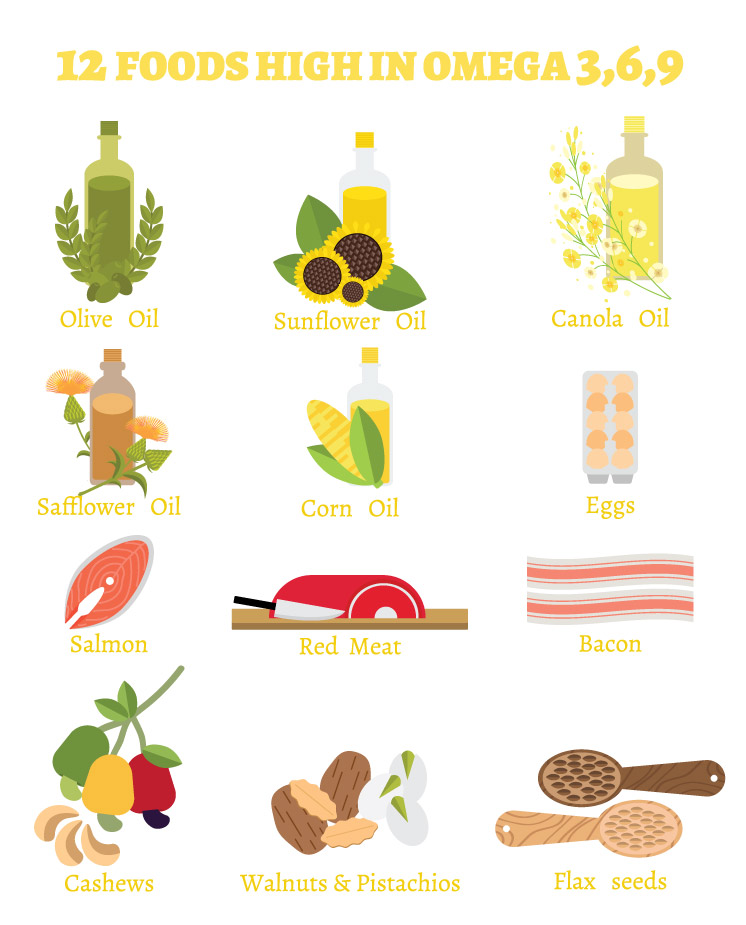

Vitamin F comes from omega 3 and omega 6. It helps with hair loss by keeping your scalp healthy and your hair hydrated. It protects against UV rays and air pollutants and is generally helpful for those with dry hair and a flaky scalp. A quality omega-3 supplement such as krill oil can help. Vitamin F can also be found in
- walnuts
- almonds
- pecans
- soybean oil
- olive oil
- corn oil
- fish
- eggs
We advise seeing a doctor for a blood test to help you isolate the deficiency that needs considerate care.


